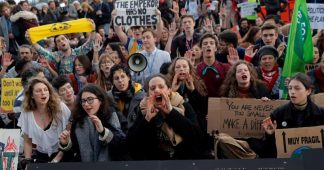This year (2019), UN Environment will publish the tenth edition of the annual Emissions Gap Report. To mark the 10 -year anniversar y and as a contribution to the United Nations Secretary-General’s Climate Action Summit, this publication revisits the gap rationale and how it has evolved, comparing the expectations following the Copenhagen Accord with the reality 10 years later. The findings are sobering. Despite a decade of increasing political and societal focus on climate change and the milestone Paris Agreement, global greenhouse gas (GHG) emissions have not been curbed, and the emissions gap is larger than ever. The challenges for the United Nations Secretary-General’s Climate Action Summit and for international climate change negotiations in 2019 are clear. Unless mitigation ambition and action increase substantially and immediately in the form of new or updated nationally determined contributions (NDCs) by 2020 and are reflected in ambitious long-term GHG development strategies, exceeding the 1.5°C goal can no longer be avoided, and achieving the well-below 2°C temperature goal becomes increasingly challenging. These and other key lessons emerging from a decade of Emissions Gap Repor ts are summarized under the 10 headings of this publication.
1. The Emissions Gap Report – the annual gauge of the disconnect between where we are and where we need to be
The Copenhagen Accord of 2009 and the Cancun Pledges of 2010 – the origin of the 2020 emissions gap assessments
The Copenhagen Accord declared that “deep cuts” in global emissions were required “so as to hold the increase in global temperature below 2 degrees Celsius” and called for an assessment that would consider strengthening the long-term goal, including in relation to “temperature rises of 1.5 degrees Celsius”. Since December 2009, 140 countries have endorsed the Copenhagen Accord. Of these, 85 countries have pledged to reduce their emissions or constrain their growth up to 2020
The pledges and the temperature targets referred to in the Copenhagen Accord were formalized by the 2010 Cancun Agreements and gave rise to a central question: will there be a gap in 2020 between emissions expected under full implementation of pledges and the level consistent with the 2°C target? This was the central question addressed in the Emissions Gap Reports from 2010 to 2014 (UNEP 2010; UNEP 2011; UNEP 2012; UNEP 2013; UNEP 2014).
Some of the Cancun Pledges for 2020 were unconditional, while others were conditional on action by others or support received, and their GHG emission implications fur thermore depended on whether a strict or lenient interpretation of accounting rules was applied. Consequently, the Emissions Gap Reports operated with four pledge cases for 2020
To estimate the 2020 emissions gap, the emissions under the pledge cases were compared with a median estimate of global emissions in 2020 consistent with a pathway to 2°C in 2100 (with at least 66 per cent chance). This approach has been applied consistently over all the years, with a shift to 2030 as the focal year as it became the target for the Paris Agreement.
Over the 2010–2014 period, the gap estimates for 2020 ranged from a low of 5 GtCO�e according to the most ambitious pledges and measured under strict accounting rules (UNEP 2010) to a high of 13 GtCO2e in 2020 according to the least ambitious pledges and more lenient accounting rules (UNEP 2012). As pledges and accounting approaches became clearer, the gap estimate converged towards between 8 and 10 GtCO2 (UNEP 2014)
Continue reading at wedocs.unep.org
We remind our readers that publication of articles on our site does not mean that we agree with what is written. Our policy is to publish anything which we consider of interest, so as to assist our readers in forming their opinions. Sometimes we even publish articles with which we totally disagree, since we believe it is important for our readers to be informed on as wide a spectrum of views as possible.











